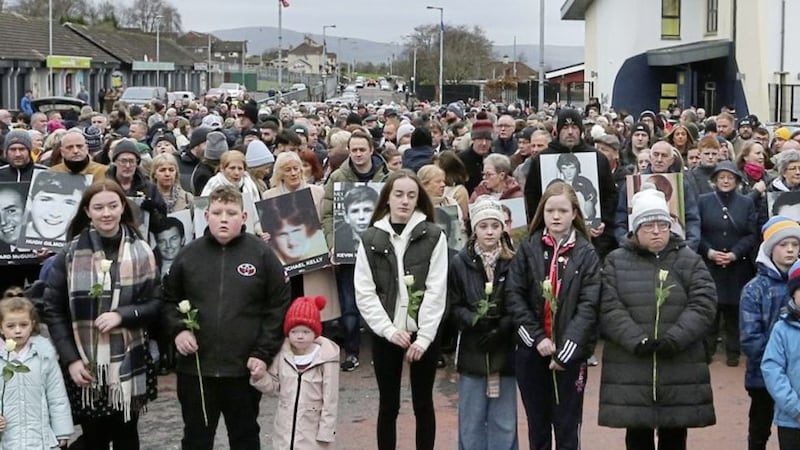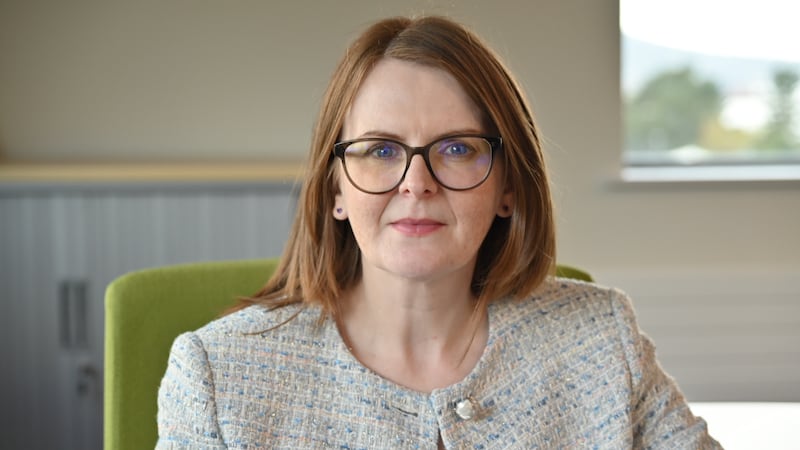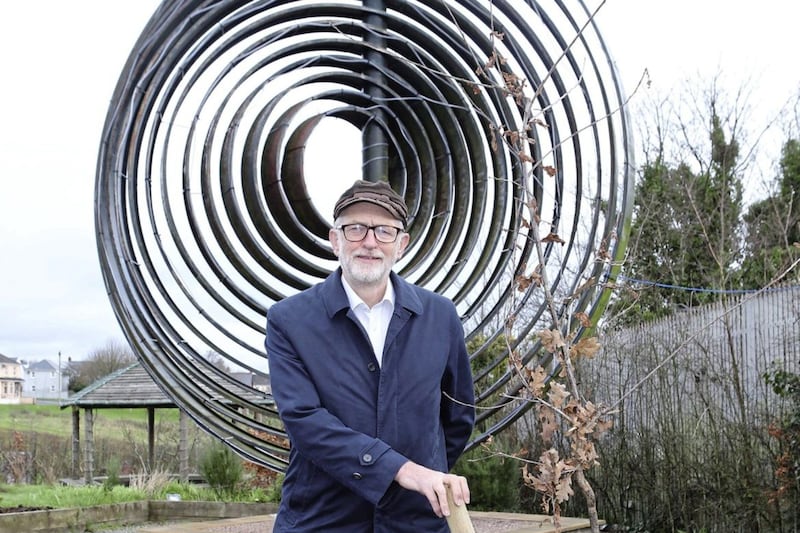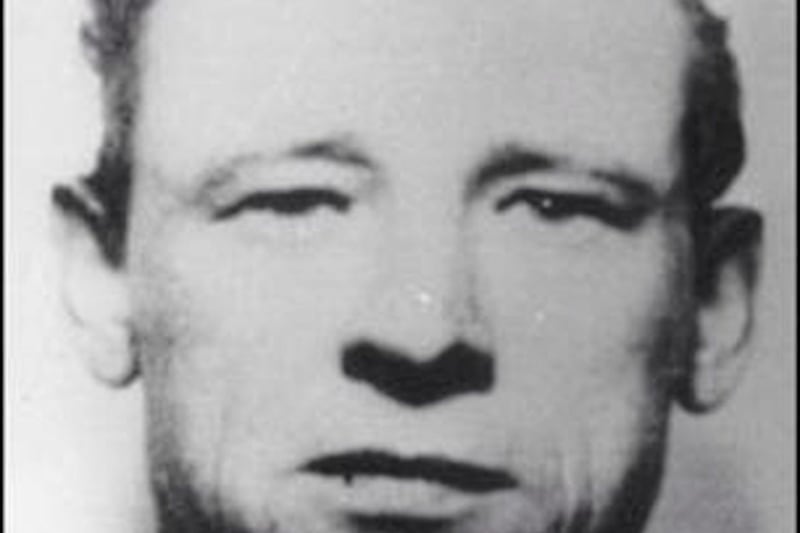Carrying white roses for each of the dead, the children, grandchildren and great-grandchildren of the victims of Bloody Sunday led a Walk of Remembrance, marking the 50th anniversary of their deaths.
The walk, yesterday morning, was organised to let the Bloody Sunday families quietly mourn their loss. Thousands of people joined them as they re-traced the final steps of the fourteen boys and men who walked to their deaths on January 30, 1972.
Showing the dignity that has defined them for 50 years, the families laid wreaths close to the spot where their loved ones fell. The Irish state stood with them. Taoiseach, Micheál Martin was joined by government ministers and political and church leaders, laying wreaths and floral tributes along with the families.
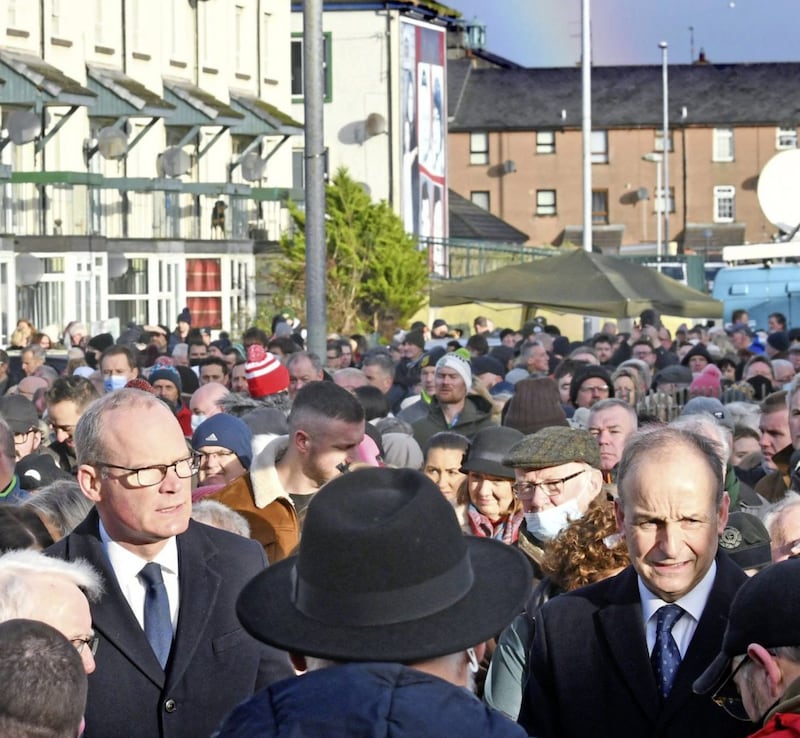
Irish Ministers for Foreign Affairs and Agriculture, Simon Coveney and Charlie McConalogue made the journey to Derry. They were joined by Sinn Féin president and vice-president, Mary Lou McDonald and Michelle O’Neill, by SDLP leader, Colum Eastwood and Alliance’s Stephen Farry.
The leader of the Catholic Church in Ireland, Archbishop Eamon Martin, also a Derry man, stood with the families. Clergy from the Catholic, Church of Ireland, Presbyterian and Methodist churches were joined by a representative of the Muslim faith. Fr Michael Canny read a message of support from Ireland’s Jewish community.
Once again, the names of the dead echoed around the world as media crews from across the globe gathered in the Bogside. The haunting Irish air Roisín Dubh floated over the air as Geraldine Doherty, a niece of Gerald Donaghey, the youngest victim, read name after name.
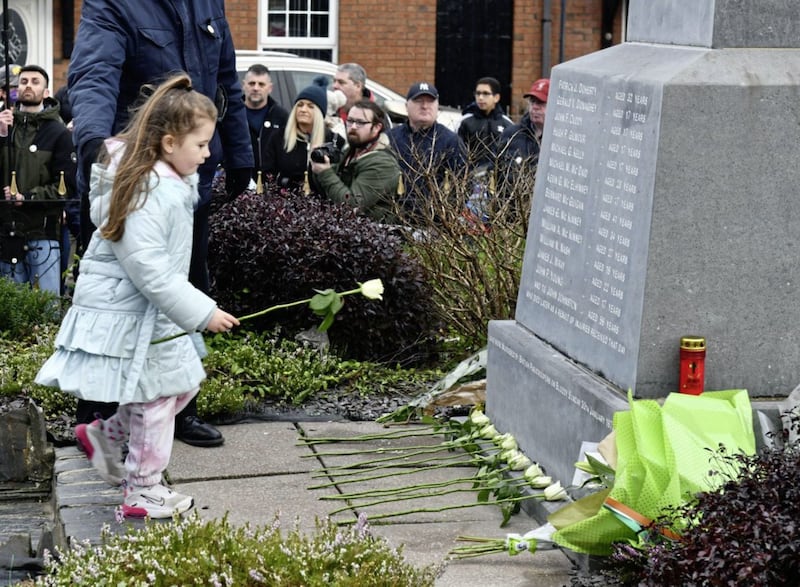
For 50 years, John Kelly has attended the annual Bloody Sunday morning ceremony. Bowed down by personal grief following the death of his wife, Margaret in October, he once again led the commemoration yesterday.
He told the hushed thousands in Rossville Street: “My name is John Kelly and my brother Michael was one of those murdered on Bloody Sunday.”
Bishop Donal McKeown prayed for those who died on Bloody Sunday and for those died because of Bloody Sunday, for those who did not live long enough to see the truth set free. He prayed for the “wonderful people of Derry”.
Michael McKinney’s brother William was one of those killed. His family still hope that Soldier F will stand trial for his brother’s murder. He read a statement on behalf of all the families.
“We have travelled a long road from the horror of that day; from the shocked silence of our homes and our streets to the lies that the British army and British government spread around the world, to standing up and repeatedly challenging the state by demanding truth and justice,” he said.
Later yesterday, as the annual Bloody Sunday march entered those same streets, the bells of nearby St Eugene’s Cathedral tolled fourteen times, once for each of the dead.
